You are no environmental evaluation expert but you’d like to understand what Product Environmental Footprint (PEF) is, what answers does it offer to the growing demand for green products, how it works and what role it can play in the consumer choices to favor sustainability, environment and the circular economy?
Together with our partners and the leader ENEA, we have produced a short explanatory cartoon video for the layman as part of our Life MAGIS project. Check it out!!
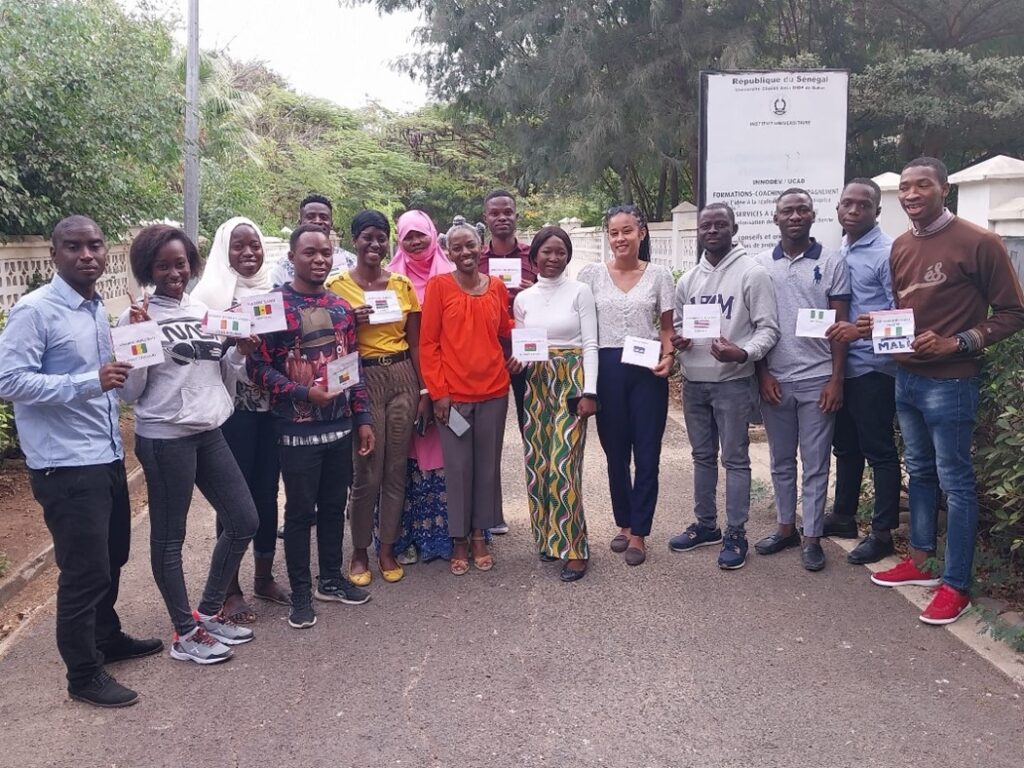
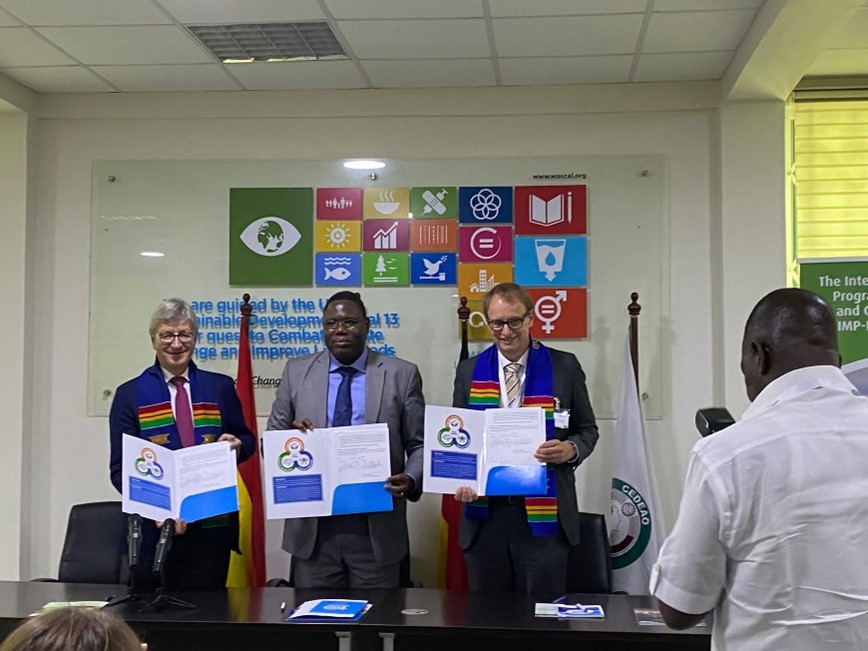
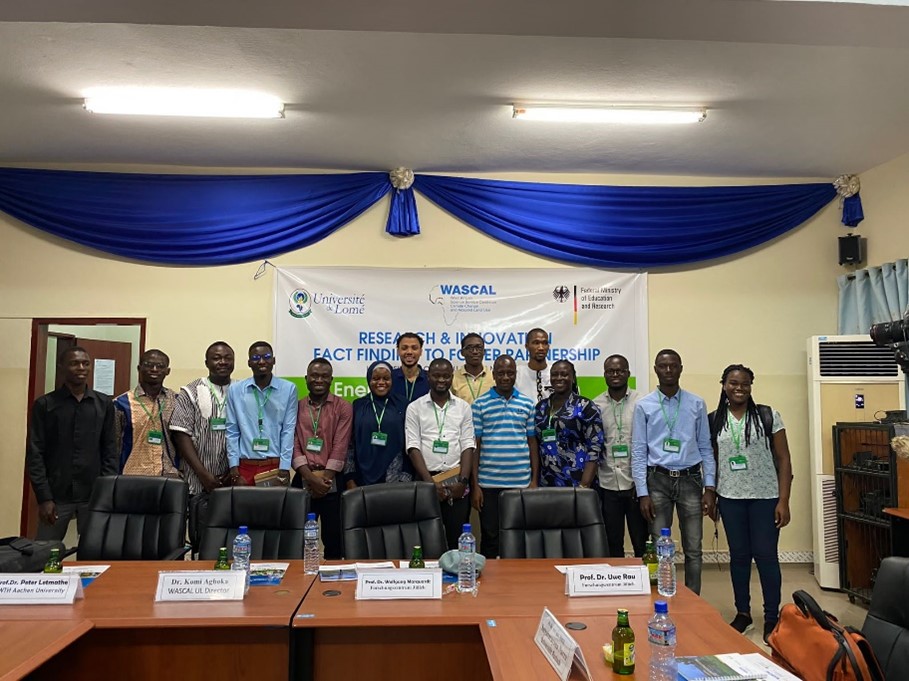
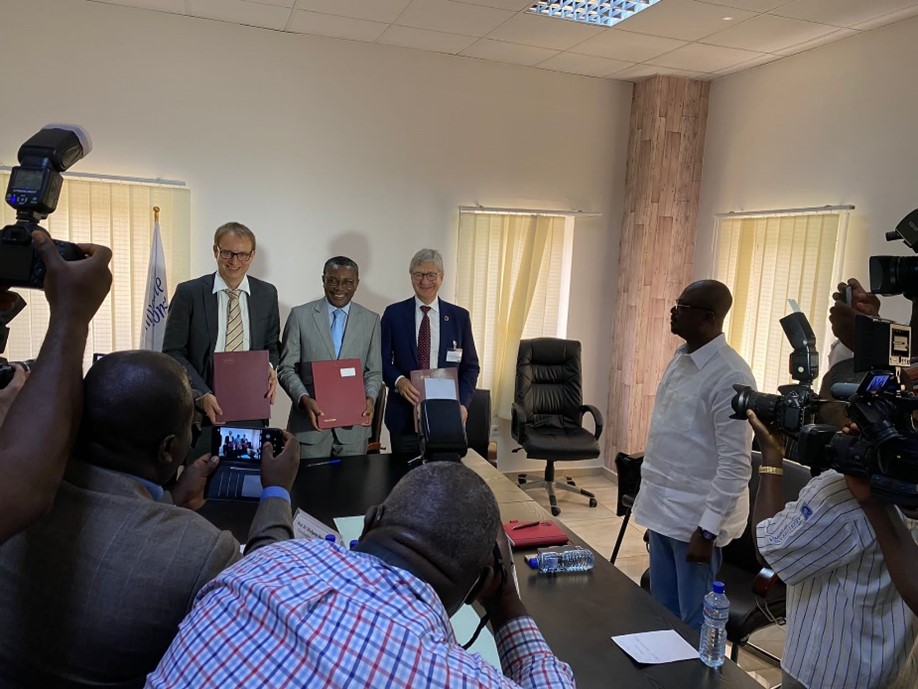
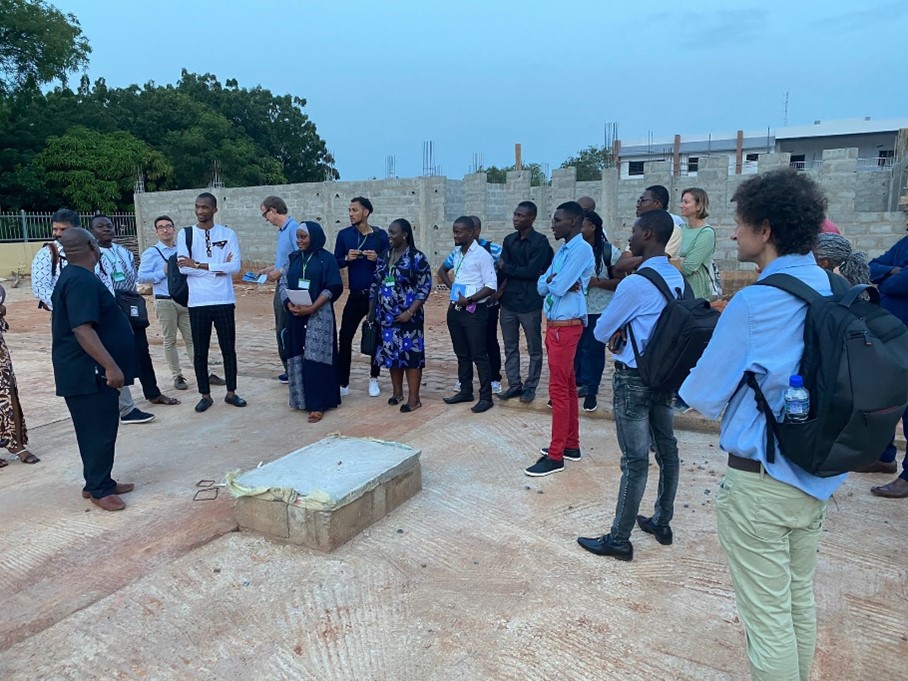
As part of the Master’s programme “International Masters Programme in Energy and Green Hydrogen” (IMP-EGH), INaB recently provided a one-week course in Dakar. The course entitled Sustainability Assessment Methods and Tools for energy and emerging technologies was delivered to students coming from 14 west African countries at the Université Cheikh Anta Diop de Dakar . Knowledge and insights on sustainability strategies and in particular Life Cycle Assessment (LCA) methodology characterized the intensive lectures including practical sessions. The main objective was to enable those students to identify and assess sustainability performance in ensuring a sustainable transition to hydrogen energy in the West African context.
Through the Master’s programme, called (IMP-EGH), the west African students are provided interdisciplinary tools for developing future “Green Hydrogen” in their various realities. The lectures are held by professors from Germany. Students can specialize in six different areas, for example economics, photovoltaics or green hydrogen technology. At the end of the study programme, the students will write their Master’s thesis in Germany.
In November, INaB already took part in a delegation trip to West Africa, together with the University of Rostock and the Research Centre Jülich. On Friday, 4 November 2022, an agreement was signed in Accra (Ghana) for a stronger cooperation between West African universities and WASCAL (West African Science Service Centre on Climate Change and Adapted Land Use). West Africa has enormous potential to generate solar and wind energy to produce green hydrogen additional to its own needs, and thus can even export sustainable hydrogen to other countries .
More information can be found here.
In the 2nd week of November 2022, our institute hosted a 5-day workshop in lieu of BeWare project, funded by European Erasmus+ program. The project focuses on qualifying engineers and other professionals in the construction industry to make building envelopes more resilient to climate change through innovative and sustainable solutions.
The participant members include ULISBOA- Portugal, RWTH- Germany, Institute for Research in Environment, Civil Engineering and Energy (IECE) – The Republic of North Macedonia, Creative Thinking Development – CRE.THI.DEV – Greece, and UNIR – Spain.
The workshop witnessed presentation on carbon reinforced concrete applications and a tour of carbon fiber facilities at RWTH. Prof. Heribert Nacken presented the potential use of Virual Reality(VR) and avatars in Digital teaching. Biowaste based solutions were explored in the context of sustainable construction. ULISBOA presented the relevance of Climate change and extreme events and their relationship with built environment.
The workshop concluded with an analysis on Latest trends on Resilience-Sustainability-building nexus and their relevance with reference to objectives of BeWare Erasmus+ project.
Versatile backgrounds of participants and their enthusiasm towards sustainability topics ,resulted in healthy discussion and positive intellectual contribution towards resilience in buildings sector.
More here.
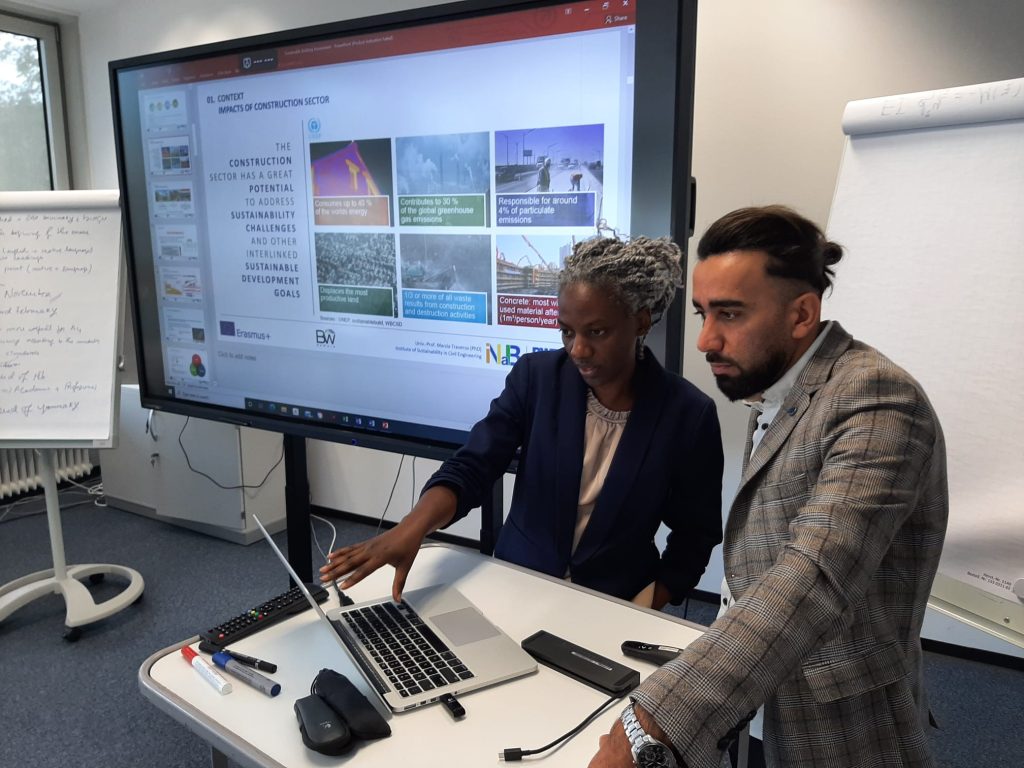
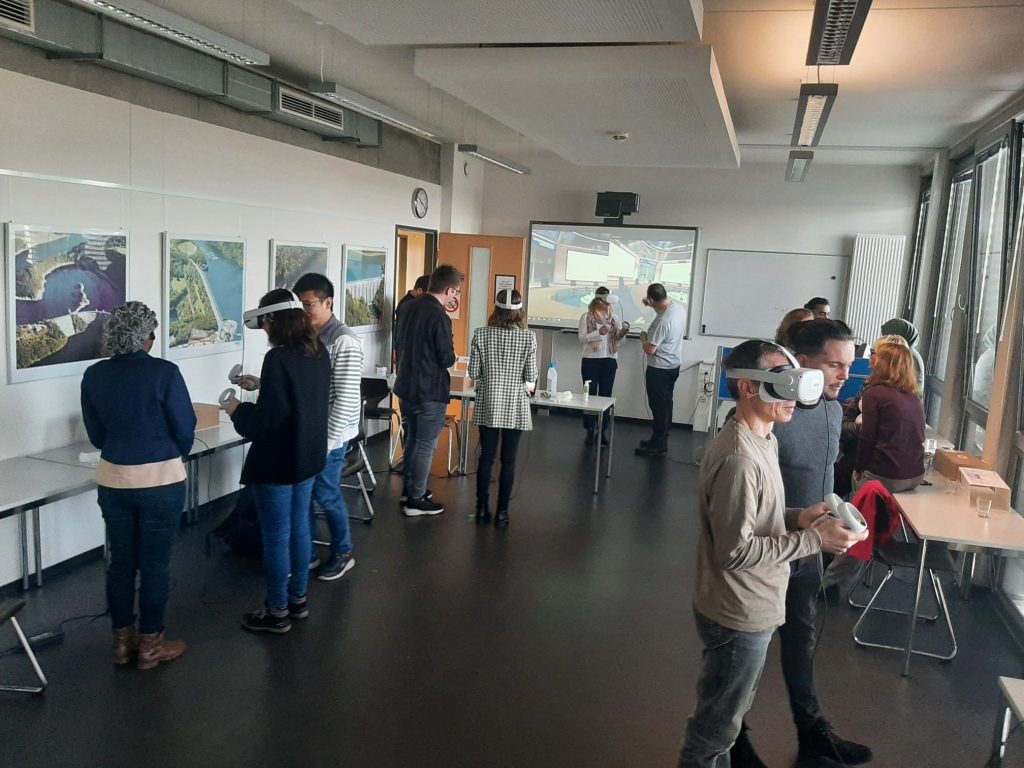
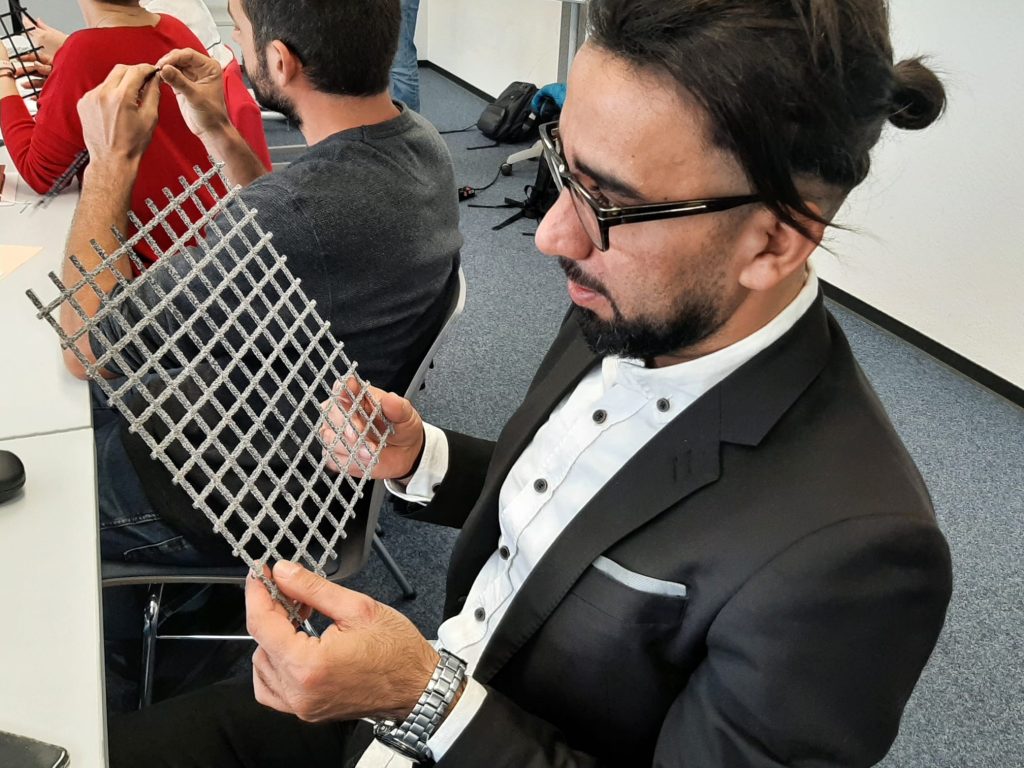
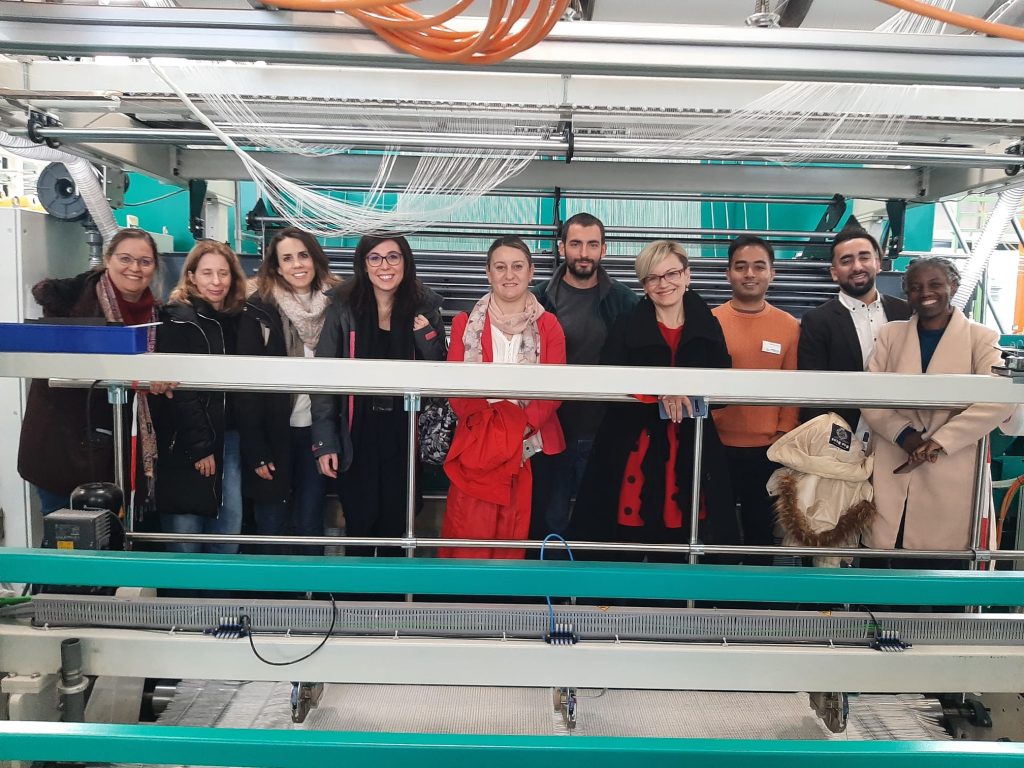
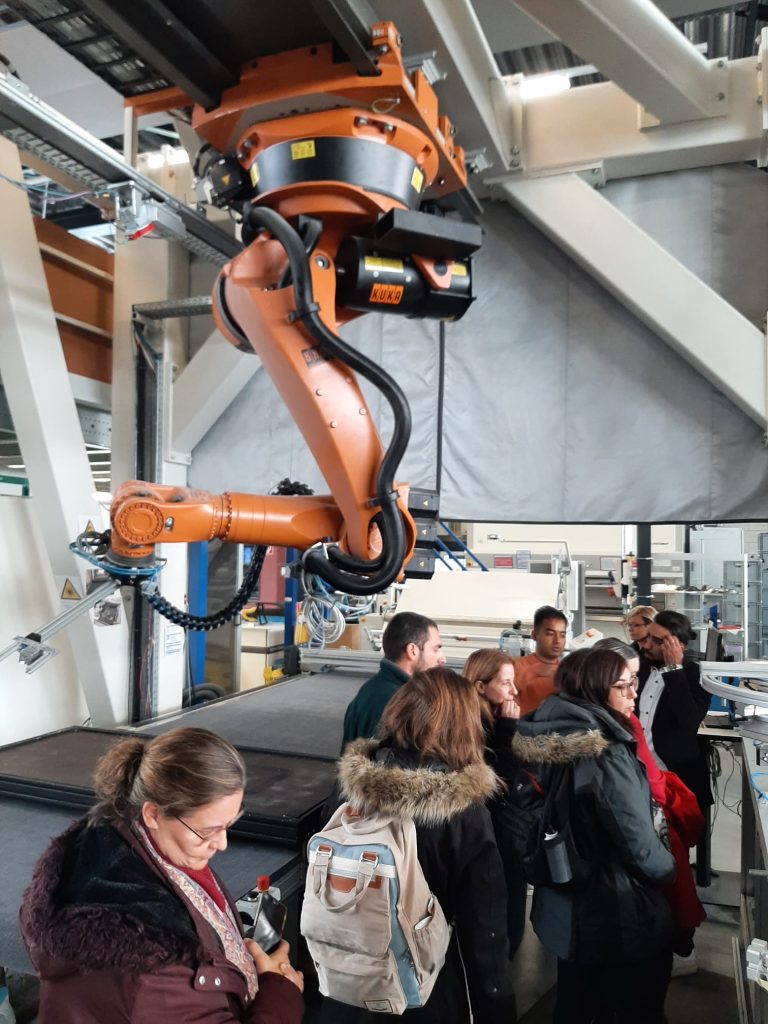
A month ago we successfully concluded this year’s S-LCA conference in Aachen. Once again we thank all participants for their commitment and dedication to this highly relevant topic.
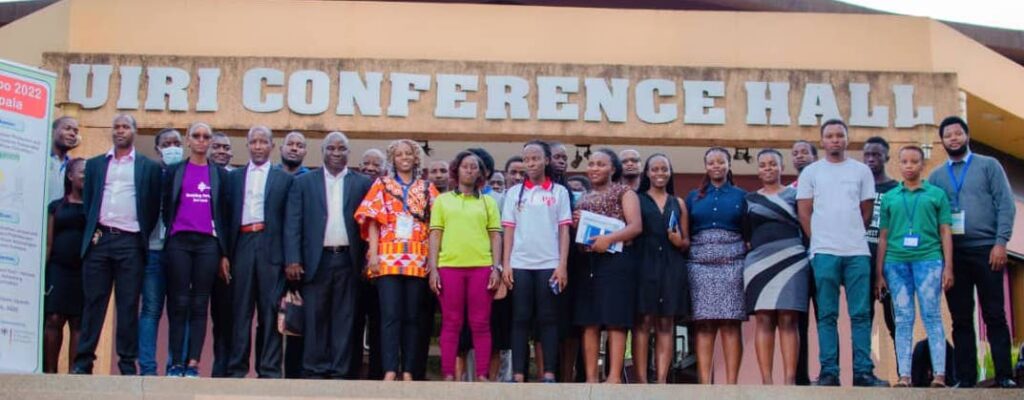
A technology exposition (TechExpo) was held in Kampala, Uganda from 30th to 31st March 2022 co-organised by the Institute of sustainability in Civil Engineering (INaB) of RWTH Aachen University. The TechExpo is one of the activities of the German Federal Ministry of Education and Research (BMBF) funded TeTraPHar Africa Project involving Uganda Cleaner Production Centre (UCPC) and Mzumbe University (MU). The main goal of TeTraPHar Africa is the increase of research uptake by industries, especially SMEs in Sub-Saharan Africa.
The TechExpo provided the opportunity for sustainable technologies to be showcased and brought together technology suppliers, SMEs of potential users, governmental institutions and investors. A particular attention was on innovative and unique technologies to enhance resource efficiency and Post-harvest loss management. Technology users, researchers, policy makers and the general public interacted with the exhibitors of, among others, Solar Dryer House (SDH) technologies, innovative irrigation systems, biogas generation and supply systems.
For more details on the TetraPHar Africa project and TechExpo Kampala, please visit: TeTraPHar Africa – TechExpo Kampala 2022
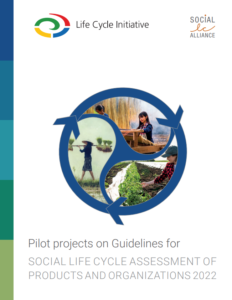
After the successful completion of the first phase of the project – the revision of the Guidelines and the methodological sheets for S-LCA – the end of the second phase follows with the publication of the pilot projects.
The project to revision the Guidelines for Social Life Cycle Assessment of Products and the related methodological sheets started in September 2017 under the guidance of the Social LC Alliance, with the participation of several experts and practitioners of S-LCA.
The project was divided into two phases. The first phase consisted of revising the guidelines and methodological sheets, and the second phase consisted of testing the practicality of the guidelines as well as the benefits and challenges of implementing them. The pilot projects are based on the third draft of the revised guidelines, which was finalized in December 2019. The call for pilots was launched in April 2019 and nine applications were submitted and respective pilots completed in 2021.
Seven out of the 9 pilots focused on the implementation of the Guidelines at product or service level. The other two pilots assessed the social impact at organizational level implementing SO-LCA, as required in the Guidelines (UNEP 2020). Most of the pilots focused on the collection of primary data in assessing the positive and negative social impacts, taking into consideration local conditions and defining reference points against which impacts on stakeholder categories are evaluated.
The Pilots confirmed the role of the Guidelines in providing a structured methodology on how to conduct a S-LCA for any type of product and organization. The reports state that the Guidelines offered a relatively straightforward path to measure social performance and risks. In particular, for policy and decision making, the pilot participants stated that S-LCA is effective in highlighting social risks or performance of complex systems and potential solutions for identified problems.
Related links:
Pilot projects on UNEP SLCA-Guidelines 2022
Guidelines for S-LCA of Products and Organisations 2020
Methodological Sheets for Subcategories in S-LCA 2021
As of 1.6.2022 Prof. Marzia Traverso is confirmed Professor at RWTH Aachen University … for life!!!
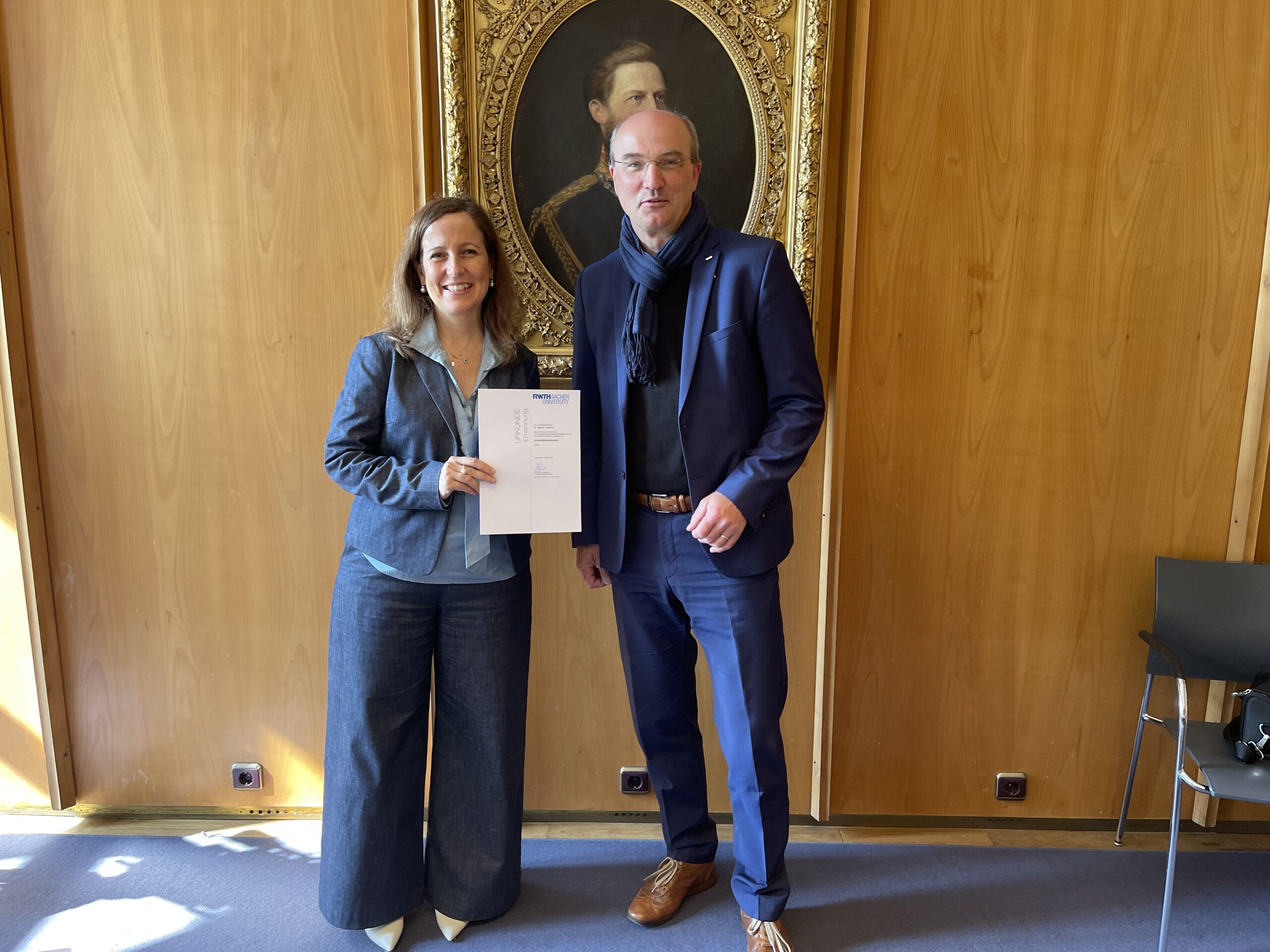
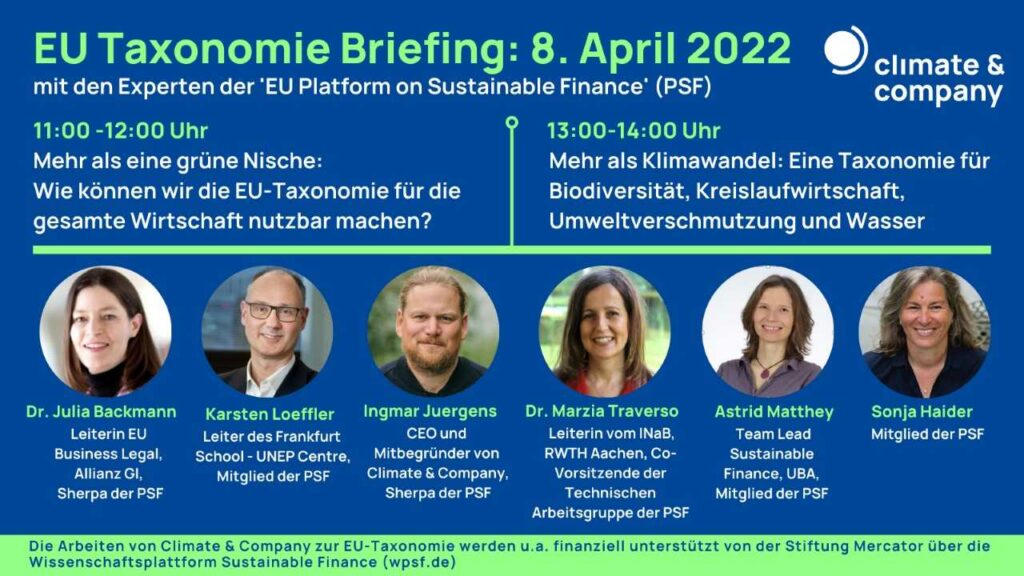
The ‘EU Platform for Sustainable Finance‘ has published two groundbreaking reports at the end of March to extend Sustainable Finance in the EU to further economic sectors.
For this purpose, an EU Taxonomy Briefing with the experts of the “EU Platform for Sustainable Finance” took place on Friday, April 8, 2022.
In this webinar, organized by Climate & Company, entitled: “More than Climate Change: A Taxonomy for Biodiversity, Circular Economy, Pollution & Water“, Ingmar Jürgens, Dr. Marzia Traverso, Dr. Astrid Matthey and Sonja Haider explain the key points from the second report. Watch the video here.
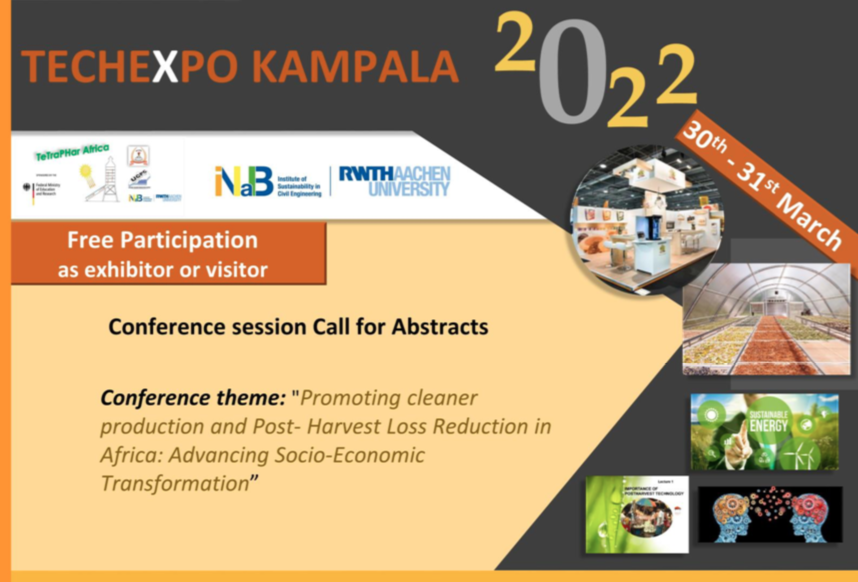
As part of the TeTraPHar project, an international technology exhibition will be held in Kampala from March 30 to 31. This TechExpo will offer consumers an opportunity to see the latest and most effective sustainable technologies and innovations in action. The technology exposition will be wholly inclusive and open to all interested stakeholders, as a ‘go-to’ hub to build partnerships and to showcase ground-breaking sustainable technologies in resource (energy and water) efficiency and post-harvest waste management. It will facilitate contact and interaction among policy makers (especially related to science and technology), Inventors, Innovators, academic/ research institutions and the private sector (especially MSMEs) on available sustainable technologies. Invitation to take part in the TechExpo is open to all entities, public or private, offering such technologies including private sector enterprises and academic and research institutions in Africa.
For more information, please click here.
On December 31st, without any prior notice, the European Commission, at 21:59, sends to the Member States and all members of the platform a complementary delegated act draft on sustainable finance, which defines further criteria according to which the economic activities relating to the production of electricity, from nuclear and methane gas plants can be included in sustainable finance.
The European platform responded to the complementary delegated act draft with a report which is sent in response within the deadline, 21st January. The report is published on the commission’s website.
The Federal Waterways Engineering and Research Institute (BAW) is looking for a Civil Engineer (m/f/d), Building Materials Engineer (m/f/d), Environmental Engineer (m/f/d) or comparable professional profile as Scientific Assistant (m/f/d) for the Department of Civil Engineering, Unit B3, Building Materials, as soon as possible. The tasks include the development of an assessment procedure for sustainability on infrastructure structures of the transport hydraulic engineering, the identification and evaluation of alternative concrete starting materials as well as construction methods and construction methods to improve sustainability and the implementation of approaches with regard to CO2 reduction in new construction and rehabilitation of massive transport hydraulic engineering structures.
The place of employment is Karlsruhe and the position would initially be limited for 3 years (full-time/part-time). The application deadline is February 4, 2022.
For more information, please click here.
Bundesanstalt für Wasserbau (BAW)
